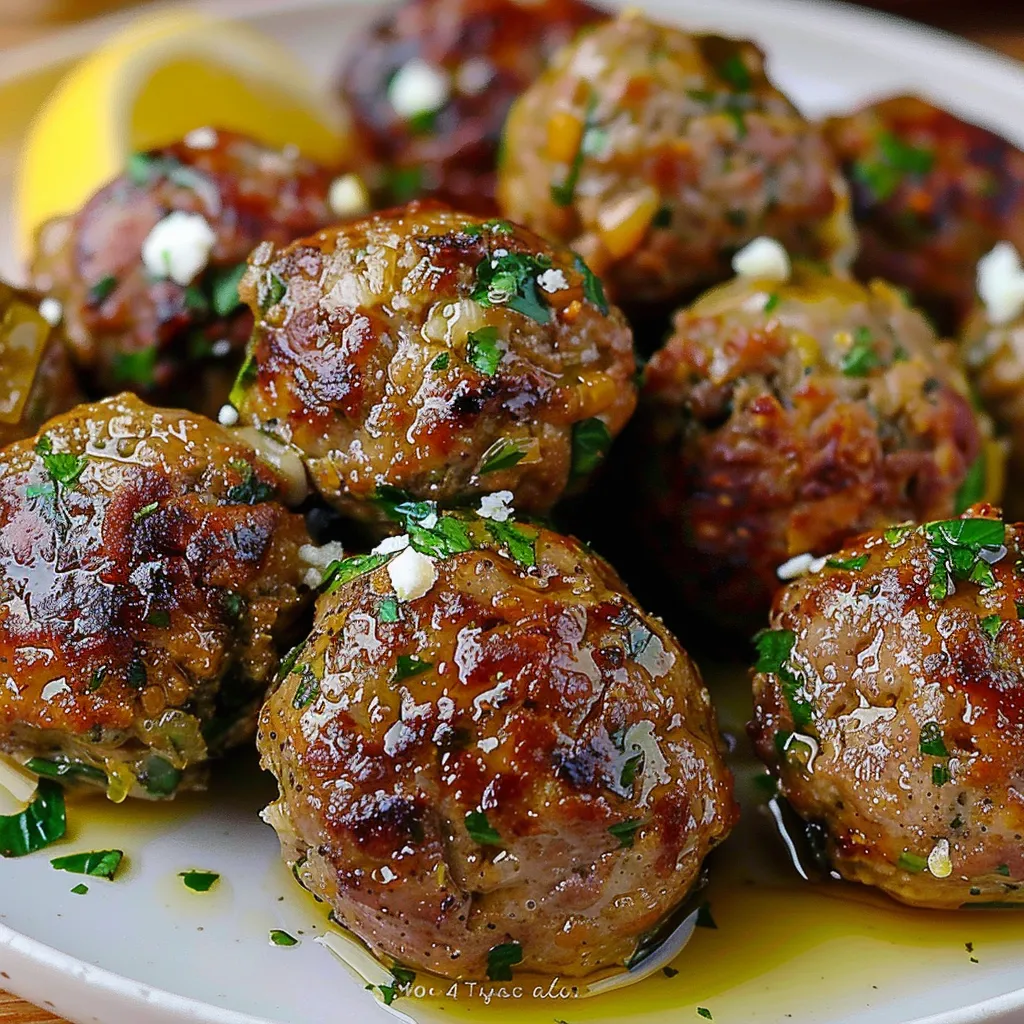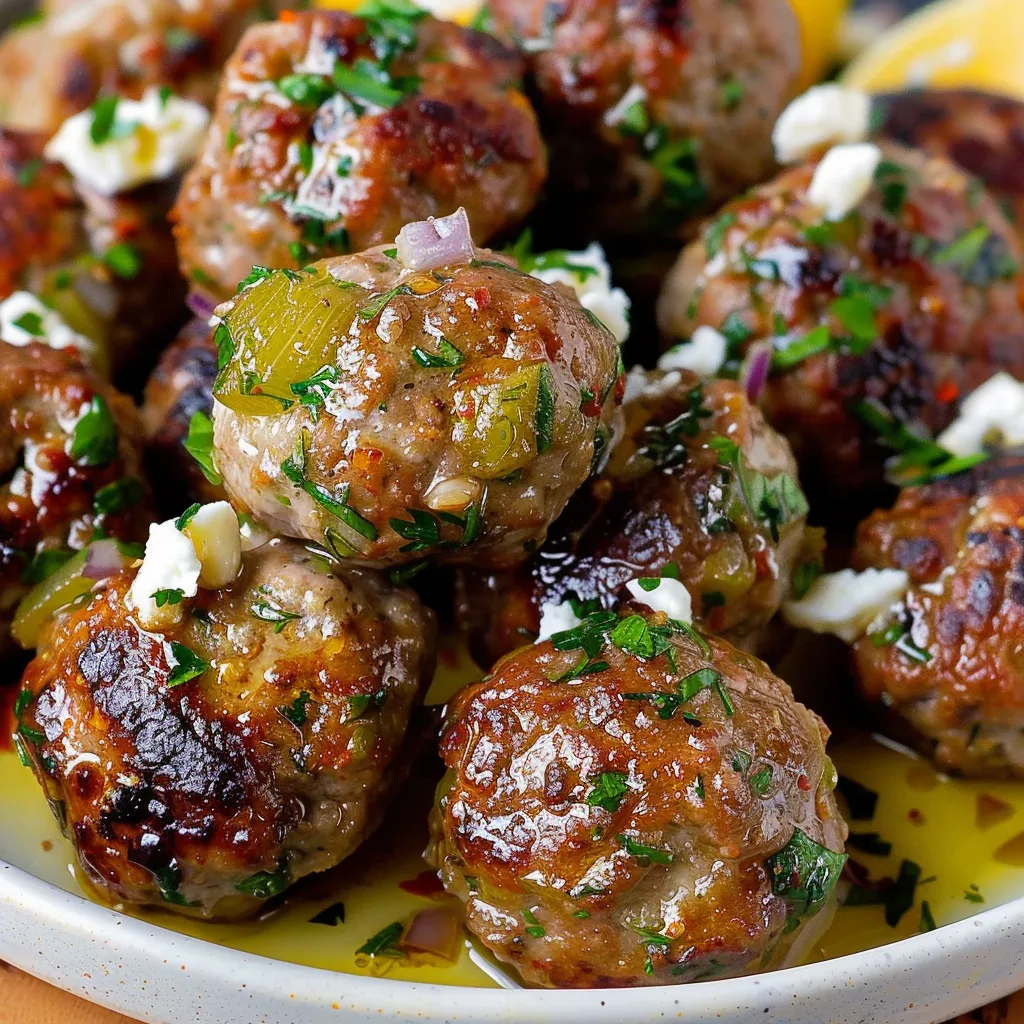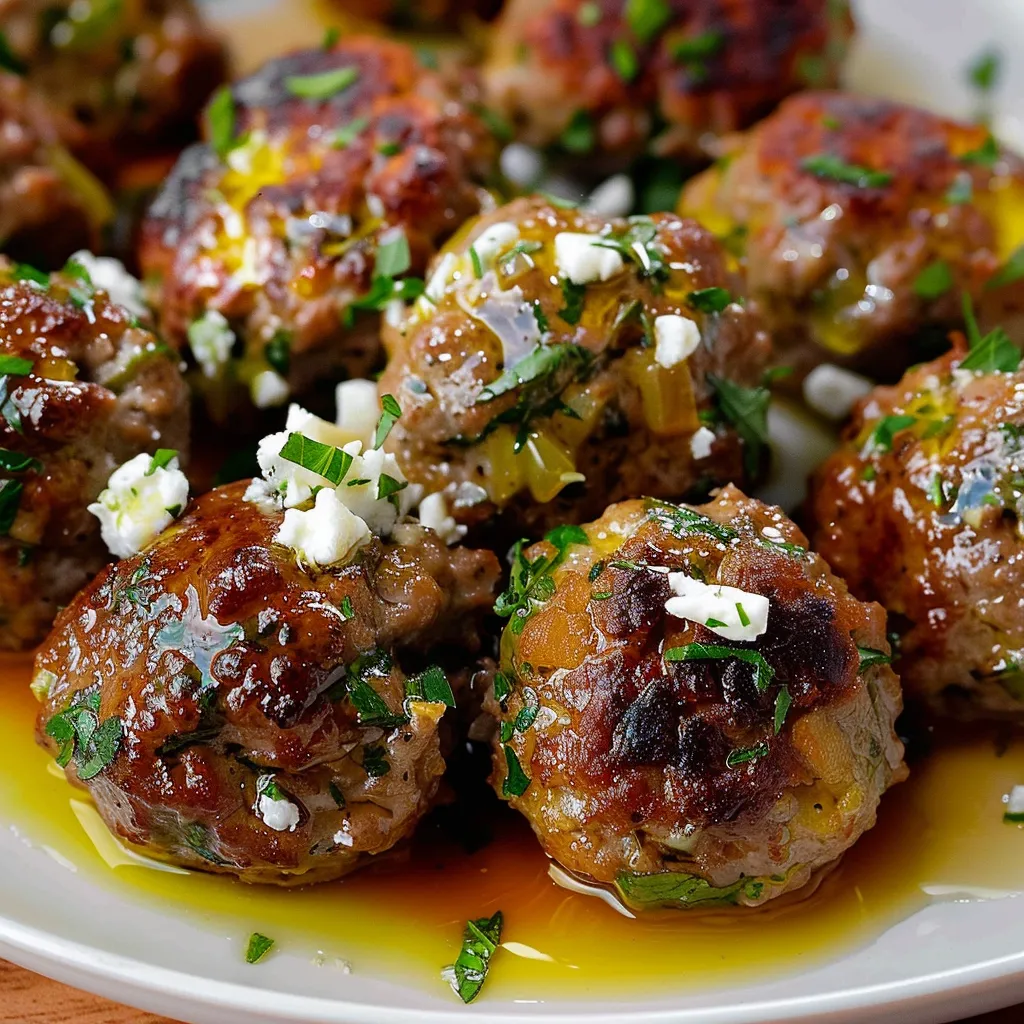 Pin to Favorites
Pin to Favorites
A perfectly crafted Greek meatball combines three essential elements: the rich, savory flavor of mixed meats, the bright freshness of herbs, and the perfect texture that comes from proper preparation. After years of perfecting this family recipe, I've found that the secret lies in treating each component with care and attention.
Last Sunday, I served these at our family gathering, and my Greek neighbor said they reminded her of her yiayia's cooking. The secret? Taking time to properly drain the vegetables and chill the mixture before cooking.
Essential Ingredients
- Ground lamb: Look for meat with some fat content for juiciness
- Fresh herbs: Especially mint and parsley, which should be bright and crisp
- Quality feta: Use Greek feta made from sheep's milk for authentic flavor
- Extra virgin olive oil: The good stuff makes a difference in flavor
 Pin to Favorites
Pin to Favorites
Having grown up watching my grandmother make these meatballs, I learned that patience and attention to detail make all the difference.
Detailed Instructions
- Prepare Your Vegetables:
- Grate onions on the large holes of a box grater. Salt and drain in a colander for 30 minutes. Press out excess moisture with paper towels. Finely chop herbs just before mixing. Mince garlic fresh, never use pre-minced.
- Mix with Care:
- Combine meats in a large bowl. Add drained vegetables and herbs. Mix gently with your hands. Don't overwork the mixture. Keep everything cold while working.
- Form Perfect Meatballs:
- Use moistened hands to prevent sticking. Scoop uniform portions using an ice cream scoop. Roll gently between palms. Place on parchment-lined sheet. Chill for at least an hour before cooking.
- Cook to Perfection:
- Heat olive oil until shimmering. Brown meatballs in batches, don't overcrowd. Turn gently to maintain shape. Transfer to oven to finish cooking. Check internal temperature reaches 160°F.
Years of making these meatballs taught me that moisture control is crucial. Too much makes them mushy, too little makes them tough.
Temperature Matters
Keep ingredients cold while working. I even chill the mixing bowl. This helps the fat stay firm, resulting in tender, juicy meatballs.
Make-Ahead Strategy
Form meatballs up to a day ahead and refrigerate. You can also freeze them uncooked on a baking sheet, then transfer to freezer bags for up to three months.
Serving Suggestions
Create a complete Greek feast with:
- Village Greek salad
- Warm pita bread
- Homemade tzatziki
- Lemon potatoes
These meatballs have become our family's celebration dish. Every time I make them, stories of past gatherings and shared meals surface.
Final Thoughts
Greek lamb meatballs are more than just food - they're a connection to tradition and family. The care taken in preparation, from properly draining vegetables to gently forming each meatball, results in something truly special. Whether served as an elegant appetizer or casual family meal, these meatballs bring people together with their irresistible flavor and comfort.
 Pin to Favorites
Pin to Favorites
Frequently Asked Questions
- → Can I make these meatballs with just one type of meat?
- Yes, you can use all beef, all lamb, or any combination of the meats specified in the recipe.
- → Why do I need to drain the vegetables?
- Draining removes excess moisture which helps the meatballs hold together better and ensures proper texture.
- → Can I make these meatballs gluten-free?
- Yes, simply substitute the panko breadcrumbs with gluten-free breadcrumbs.
- → How do I know when the meatballs are done?
- They should reach an internal temperature of 160°F (71°C) and be browned on the outside.
- → Can I freeze these meatballs?
- Yes, they freeze well for up to 3 months in an airtight container.
